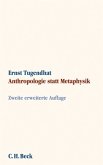Philosophische Diskussionen über die Natur des freien Willens werden seit Jahrhunderten geführt. Derzeit gibt es die starke Tendenz, die Existenz eines freien Willens zu negieren: Wenn physikalische und neurologische Gesetzmäßigkeiten unsere Handlungen bestimmen, scheint die Möglichkeit, zwischen verschiedenen Handlungsalternativen auszuwählen, nicht gegeben.
Christian List, Philosoph an der Ludwigs-Maximilian-Universität München, führt die Leugnung der Existenz eines freien Willens auf ein reduktionistisches Weltbild zurück: Betrachtet man die Welt durch die Brille der Fundamentalphysik, sieht man nur Partikel, Felder und Kräfte und keinen Raum für menschliches Handeln und freien Willen. Aber freier Wille und seine Voraussetzungen sind keine physikalischen Eigenschaften der natürlichen Welt. Der freie Wille ist ein Phänomen einer höheren Ebene: der Ebene der Psychologie. Betrachten wir den freien Willen im richtigen Kontext, zeigt sich, dass er unabdingbar ist, um unsere Welt zu erklären.
Christian List, Philosoph an der Ludwigs-Maximilian-Universität München, führt die Leugnung der Existenz eines freien Willens auf ein reduktionistisches Weltbild zurück: Betrachtet man die Welt durch die Brille der Fundamentalphysik, sieht man nur Partikel, Felder und Kräfte und keinen Raum für menschliches Handeln und freien Willen. Aber freier Wille und seine Voraussetzungen sind keine physikalischen Eigenschaften der natürlichen Welt. Der freie Wille ist ein Phänomen einer höheren Ebene: der Ebene der Psychologie. Betrachten wir den freien Willen im richtigen Kontext, zeigt sich, dass er unabdingbar ist, um unsere Welt zu erklären.
»List defends a 'compatabilist libertarianism', demonstrating how a deterministic account of human organisms, construed as physical systems, might be reconciled with the substantive kinds of choice, agency and self-control people must have if they are to be justly held responsible for their actions in moral and legal contexts. In accessible prose, List weaves together work on mental causation, counterfactual dependency, and psychological explanation to sketch an attractive account of free will that might be used to unify the diverse perspectives of humanists and social scientists. The resulting synthesis is remarkable for both its clarity and practical significance.« Begründung der Jury zur Verleihung des 2020 Joseph B. Gittler Award »This book is a gem. It is exceptionally clear and rigorously argued, and at the same time accessible even to those with only scant knowledge of the traditional free will debate.« Peter A. Graham, Notre Dame Philosophical Reviews »Accessible, clear and convincing... List's carefully crafted argument may help many of us sleep more soundly, being further assured that we can choose how to live our own lives.« Ellie Lasater-Guttman, LSE Review of Books »Well argued and admirably sets out the challenges to free will that, when coupled with its clarity, make it an excellent gateway into the contemporary free will debate.« Logan B. Weir, Review of Metaphysics »List argues that free will is not explained away through science by looking at the activity in our brain... A wonderful defense of free will accessibly written for readers new to the topic.« Library Journal »In Why Free Will Is Real, List does as advertised, advancing a novel, intriguing view of free will and making a thoughtful case for the thesis that free will, as he conceives of it, is real. This book is a pleasure to read.« Alfred Mele, Florida State University »An original and challenging new contribution to contemporary debates about free will. After making a compelling case for the irreducibility of different explanatory levels of reality, Christian List argues that free will requires indeterminism at the psychological level of explanation, but not at the physical level, where it is compatible with determinism. His arguments in support of these claims address a host of potential objections and include insightful appeals to new developments in the logic of agency and branching time, among other novel arguments.« Robert H. Kane, The University of Texas at Austin »Many philosophers have suggested that we may be causally determined at the neurophysiological level, but not at the psychological. List is the first to work out a detailed proposal of how this might work, and of how it can underpin an account of free will. Developing ideas from theories of causation and of counterfactuals, it provides an incisive and accessible introduction to contemporary thinking about how we might be free in a causally-determined world.« Richard Holton, University of Cambridge








